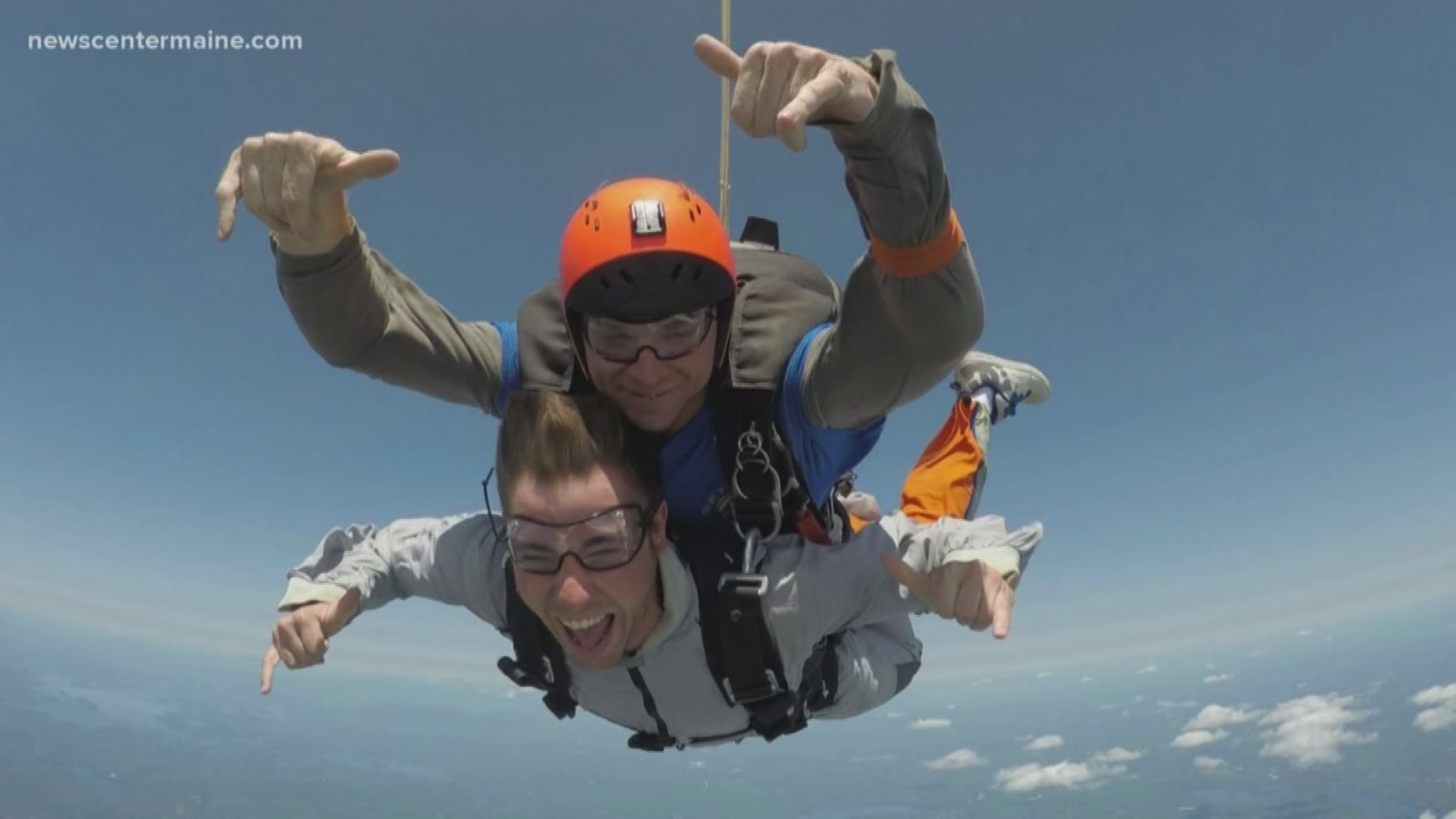(NEWS CENTER Maine) -- Two critical questions remain unanswered in the case of a 41-year-old skydiving instructor who fell to his death Thursday in Lebanon: how and why did this happen?
The Federal Aviation Administration, the U.S. Parachute Association, and the Maine State Police did not have any new information as of Tuesday, October 2.
The Maine Warden Service, State Police, and Search and Rescue teams found Brett Bickford, of Rochester, N.H., Friday evening in a wooded area near the runway at the Skydive New England facility in Lebanon, ME. Bickford was an instructor there and died after investigators believe he fell out of his harness during a tandem jump: where an instructor and student are attached and dive together.
Investigators are looking at photo and video evidence from the jump, according to the Maine Warden Service.
The United States Parachute Association, which issues the safety standards for the skydiving industry, reports that tandem jumps, on average, are safer than solo jumps: for every 500,000 jumps, one student dies. In 2017, USPA recorded 24 fatal skydiving accidents in the U.S. out of roughly 3.2 million jumps.
Ed Scott, executive director of the USPA, called the instructor's death "unheard of."
"I can say with confidence that this has never happened before," said Scott.
Scott admitted that deaths are a realistic risk when skydiving, but said the rates are the lowest the sport has ever seen.
"They still happen, but they sure happen with less frequency. Training methods have improved, equipment has improved. Safety rules have been refined," said Scott."Most of the incidents that occur occur because either the skydiver did something he shouldn't have done, or did not do something properly that he should have done in the course of that jump."
The USPA does not keep the names or locations of the people involved in skydiving incidents.
Mike Kinch, who went skydiving with Bickford in 2016, said Bickford was very safety-conscious, performing numerous safety checks.
"I felt like I was in good hands, and I was. I landed safely," said Kinch.
"He's calming you down. Your hearts racing a million miles a minute. [His death is] just really tragic."
Each drop zone, the location where the skydivers land, has its own "safety and training advisers."
There are two USPA advisers at Skydive New England. Neither of them returned NEWS CENTER Maine's requests for comment.

